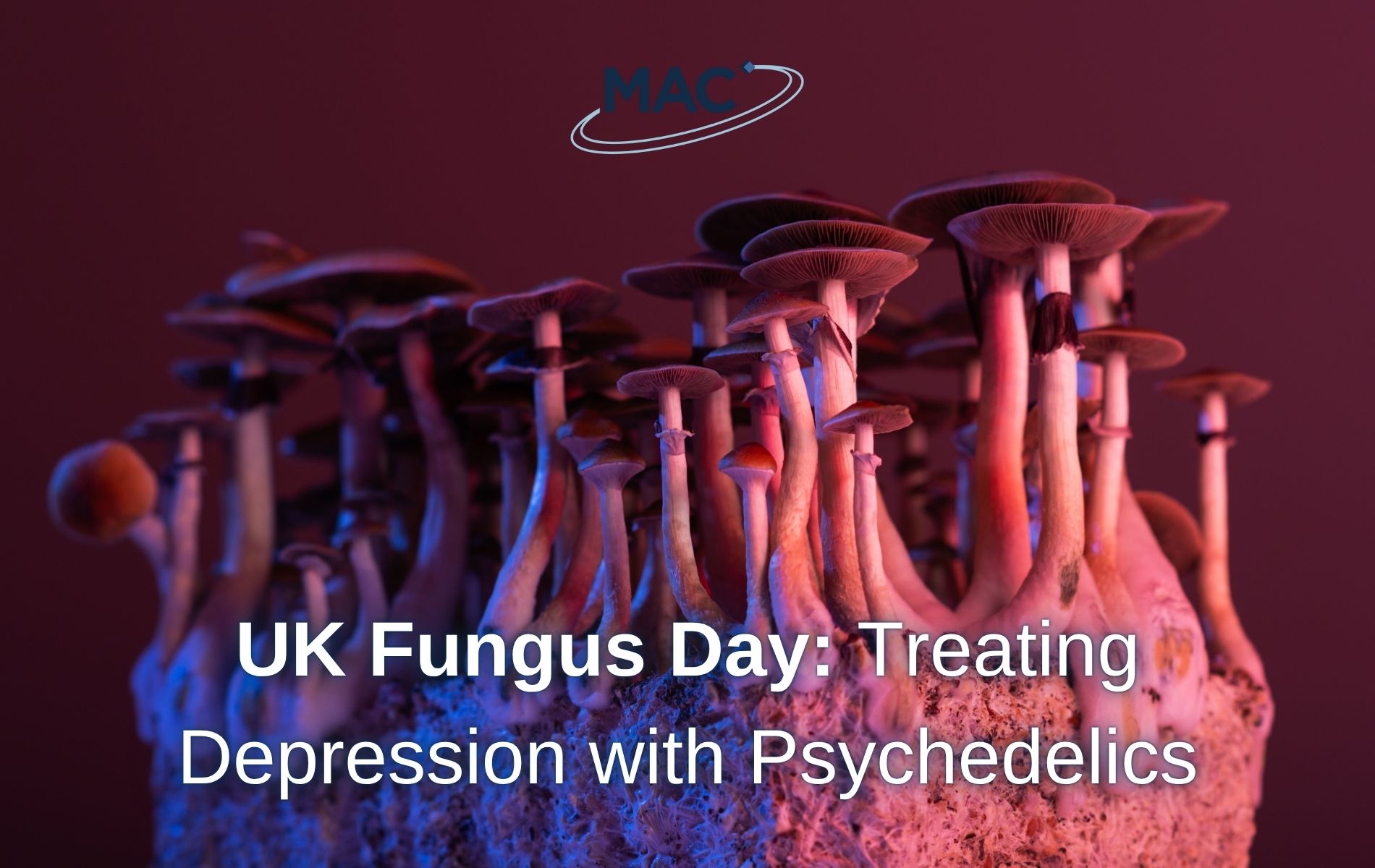As we celebrate UK Fungus Day, it’s worth reflecting on how fungi, often overlooked and misunderstood, are quietly revolutionising mental health care. At the heart of this transformation is psilocybin, the psychoactive compound found in certain mushrooms, which shows remarkable promise in the treatment of depression.
Current Treatments for Depression
For decades, depression has been treated with a familiar toolkit: antidepressants, cognitive behavioural therapy (CBT), and lifestyle changes. While these approaches help many, they often fall short for those with recurrent depression, with only 50% of people who are living with depression benefiting from existing antidepressants1.
Enter psilocybin, a compound once relegated to counterculture, that is now being rigorously studied in clinical settings across the UK and beyond.
Recent Psychedelic Research For Depression
The late 20th and early 21st centuries witnessed the rebirth of psychedelic research. Advances in neuroscience and a growing mental health crisis prompted researchers to revisit these compounds.
Scientists have researched into psychedelics for addiction; in a 2014 study conducted by the John Hopkins Centre for Psychedelic and Consciousness Research, participants who were smoking addicts were dosed with psilocybin and reported an 80% success rate in quitting, compared with 35% for those using over-the-counter antismoking medicines2.
Researchers have also conducted trials for psychedelics to treat anxiety and depression. In 2016, one study reported that a substantial majority of people suffering cancer-related anxiety or depression found considerable relief for up to six months from a single dose of psilocybin in a clinical setting3.
The Mechanics of Psilocybin
Psilocybin interacts with serotonin receptors in the brain, disrupting rigid neural pathways associated with rumination and negative thought loops. This “reset” effect allows for new patterns of thinking and emotional processing.
But psilocybin isn’t just a chemical fix. Its therapeutic power lies in the combination of the psychedelic experience and guided psychotherapy. Patients often describe their sessions as among the most meaningful experiences of their lives, gaining insights that help reshape their relationships, habits, and sense of self.
Research into Psychedelics for Depression
MAC Clinical Research is currently seeking participants that have recurrent depression (must be currently having a depressive episode that began at least two weeks ago) and would like to take part in a new study to evaluate the safety and efficacy of an investigational drug, assessing psychedelic therapy medications for the treatment of recurrent depression.
You may receive up to £2950 for taking part in this study. For more information on how you can get involved, visit our Depression Research Page.
1 British Journal of Psychology Bulletin – Against the stream: Antidepressants are not antidepressants – an alternative approach to drug action and implications for the use of antidepressants
2 Journal of Psychopharmacology – Pilot Study of the 5-HT2AR Agonist Psilocybin in the Treatment of Tobacco Addiction
3 Journal of Psychopharmacology – Psilocybin produces substantial and sustained decreases in depression and anxiety in patients with life-threatening cancer: A randomized double-blind trial




